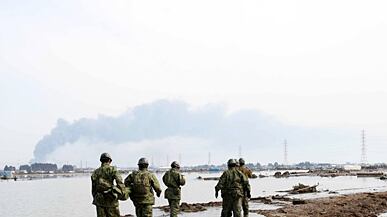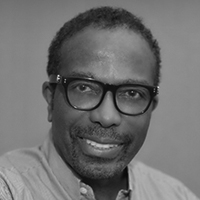Amid the seemingly relentless reports of the tragedy and menace Japan has endured since an earthquake and tsunami shocked the nation on Friday, stirring stories about miraculous survivors of the catastrophe have begun to emerge. The hope is that many more such people will be identified in the coming days.
On the political front, Prime Minister Naoto Kan can be counted among the survivors in the disaster—and his ability to hang onto his job may well be a miracle.
Photos: Japan Devastation and Aftermath

Just before the deadly tremor struck, Kan appeared on the verge of resigning. Just last week, the prime minister came under fire for receiving more than 1 million yen (about $12,000) from a Korean national, which could lead to criminal charges, since under Japanese political-finance laws, accepting political contributions from a foreign national is illegal. Days before that, a similar offense brought down Kan's foreign minister Seiji Maehara, who received 250,000 yen (about $3,000) from a Korean barbecue-shop owner in Kyoto. Kan's approval rating plummeted below 20 percent, and the opposition demanded his scalp.
NEWSWEEK/The Daily Beast's Lennox Samuels reports from Japan
All that appears to have been washed away by the tsunami—at least for now. Rival lawmakers have found it prudent to unite behind the once-beleaguered premier. Kan has received passing marks for his overall handling of the earthquake and tsunami—his sincere, if not ringing, call on his fellow citizens to unite in rebuilding “a new Japan” in the face of “the biggest hardship since World War II” was praised. Japan’s shaken citizenry are hoping that in the coming weeks, the prime minister does a good job handling rescue, salvage, and reconstruction efforts, along with the expanding reactor problem at the Fukushima Daiichi nuclear plant—the cooling system at a third reactor failed Monday, after a similar problem caused explosions in the containment buildings of two reactors.
• Owen Matthews: It’s Not Chernobyl• Harrowing Stories After the Quake• Photos, Videos of the Crisis Kan also has faced some criticism about the way his administration has managed the calamity, particularly the post-tsunami accidents at the Unit 1 and Unit 3 reactors in Fukushima Prefecture in the northeast, the hardest-hit part of the country. Some have chided the government for not moving quickly, openly and authoritatively enough to assure Japanese citizens that they are safe despite the explosions and resulting leakage of radiation—which authorities have insisted don’t pose a significant risk to people.
Since becoming prime minister last June, Kan has accomplished little—other than watering down his party's campaign promises. Even some members of his own ruling Democratic Party of Japan were calling for him to step down. One tabloid magazine likened Kan to Libya's Muammar Gaddafi for clinging to power, no matter how unpopular he was, how inept, and how much he lacked leadership. Opposition lawmakers are among those criticizing Kan's administration for failing to disclose accurate information about the “partial” nuclear meltdown in a more timely way.
Japanese pundits joined in the scolding. “The government should realize that claiming there’s ‘no problem’ and that it is ‘taking precautionary measures’ without providing detailed information would only cause fear and concern among the public,” thundered the Asahi Shimbun. The newspaper said that so far, Tokyo Electric Power Company and the government have failed to assure the people about the situation.
Some have chided the government for not moving quickly, openly and authoritatively enough to assure Japanese citizens that they are safe.
The government spokesman, Chief Cabinet Secretary Yukio Edano, an earnest but uncharismatic man who regularly briefed reporters, has insisted that radiation levels pose no risk. But he also flubbed delivery of news about the evacuation zone the government was setting up around the Fukushima Daiichi plant, first saying it was three to 10 kilometers, and then quickly upping it to 20 kilometers. He also made conflicting and confusing statements—in the same sentence at one point, saying “the meltdown” at Unit 1 resulted in minor radiation leak, but admonishing reporters not to refer to the situation as a…meltdown.
“Information was being given begrudgingly, questions left unanswered,” MIT nuclear expert Dr. Jim Walsh told The Daily Beast. “Governments fear public resistance to nuclear [power], so there’s a tendency to play the cards close to the vest and not put all the information out there. We were seeing video [of the first blast] but they were not coming out fully on what they know. Well, if you’re begrudging, that leaves people to speculate…and you lose credibility.”
Walsh, added, however, that the government has been getting better. And many Japanese, a polite people who tend to adhere to social conventions and tradition—there was never any question of looting occurring during the disaster, something that often happens elsewhere—are prepared to cut the government some slack. “I personally feel that there’s some politics here already; some people are against nuclear weapons, so they’re quick to say the government is covering up because we need those plants,” said Haruyoshi Takeuchi, who works in forest certification. “I tend to believe the government’s way of thinking.”
This is no time for political infighting. Considering the enormity of this crisis, no administration would be able to manage the situation without some confusion or haste. Many Japanese have memories of the Kobe quake in 1995, which killed 6,400. The prime minister at the time, Tomiichi Murayama, was pilloried for what many complained was a slow response by his government. Kan’s response has been speedy by comparison, and the prime minister has shown genuine compassion, which will endear him to his fellow Japanese. How long that affection will last depends on how bad the crisis gets, and how well the government handles it. That, and the patience of clamorous politicians who may still want to oust the country’s fifth prime minister in as many years.
Lennox Samuels is a Newsweek/Daily Beast editor based in Bangkok. He covered the 2004 Indian Ocean tsunami.
Yokota is Newsweek's correspondent in Tokyo and the editor-in-chief of Newsweek Nihonban, Newsweek's Japanese-language partner.







